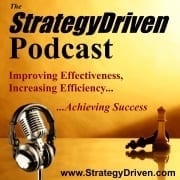The Big Picture of Business – Setting, Meeting, and Benefiting from Goals
Businesses should review their Strategic Plan annually. New year projections are the best time to benchmark progress and adjust sights for the coming term.
Additionally, corporate executives must have personal goals written, in conjunction with a professional business coach or mentor. Goals require measurable objectives, with realistic dates and percentages for successful accomplishment.
Goals should also focus upon balance between corporate ideals and a healthy personal life for executives.
Reasons for Goal Setting:
- Human beings live to attract goals.
- Organizations get people caught in activity traps… unless managers periodically pull back and reassess in terms of goals.
- Managers lose sight of their employees’ goals. Employees work hard, rather than productively. Mutually agreed-upon goals are vital.
- People caught in activity traps shrink, rather than grow, as human beings. Hard work that produces failures yields apathy, inertia and loss of self-esteem. People become demeaned or diminished as human beings when their work proves meaningless. Realistic goals can curb this from happening.
- Failure can stem from either non-achievement of goals or never knowing what they were. The tragedy is both economic and humanistic. Unclear objectives produce more failures than incompetence, bad work, bad luck or misdirected work.
- When people know and have helped set their goals, their performance improves. The best motivator is knowing what is expected and analyzing one’s one performance relative to mutually agreed-upon criteria.
- Goal attainment leads to ethical behavior. The more that an organization is worth, the more worthy it becomes.
- Most management subsystems succeed or fail according to the clarity of goals of the overall organization.
How to Find Goals:
- Examine problems.
- Study the organization’s core business.
- Strengths, Weaknesses, Opportunities and Threats.
- Portfolio analysis.
- Cost containment.
- Human resources development.
- Motivation and commitment.
Make Goal Setting a Reality:
- Start at the top.
- Adopt a policy of strategic planning.
- Strategic goals and objectives must filter downward throughout all the organization.
- Training is vital.
- Continual follow-up, refinement and new goal setting must ensue.
- Programs must be competent, effective and benchmarked.
- A corporate culture must foster all goal setting, policies, practices and procedures.
Priorities:
- Focus on important goals.
- Make goals realistic, simple and attainable.
- Reward risk takers.
- Recognize that trade-offs must be made.
- Goals release energy.
- Information leads to dissemination, leading to teaching-training, leading to insight, leading to understanding, leading to knowledge, leading to wisdom.
- View goals as long-term, rather than short-term.
Rules for Budgeting-Planning:
- Use indicators and indices wherever they can be used.
- Use common indicators where categories are similar, and use special indicators for special jobs.
- Let your people participate in devising the indicators.
- Make all indicators meaningful, and retest them periodically.
- Use past results as only one indicator for the future.
- Have a reason for setting all indicators in place.
- Indicators are not ends in themselves… only a means of getting where the organization needs to go. Indicators must promote action. Discard those that stifle action.
Developmental Discipline:
- Discipline at work is accepted, for the most part, voluntarily. If not voluntarily accepted, it is not legitimate.
- Discipline is a shaper of behavior, not a punishment.
- The past provides useful insights into behavior, but it is not the only criteria to be used.
Applying Developmental Discipline:
- Rules and regulations must be known by all employees.
- Disciplinary action should occur as close to the time of violation as possible.
- The accused person must be presented with the facts and the source of the facts.
- The specific rule that was broken must be stated.
- The reason for the rule being enacted should be stated.
- The accused person must be asked if he-she agrees with the facts, as stated. If the reply is affirmative, he-she should justify the behavior.
- Corrective action should be discussed in positive and pro-active terms.
Ways in Which Goals Improve Effectiveness:
- Defines effectiveness as the increase in value of people and their activities as resources.
- Recognizes that humans are achievement and success creatures.
- Goals infuse meaning into work and work into other aspects of life. Life is fully lived when it has meaning.
- One cannot succeed without definitions of success. One must expect something to achieve success.
- Failure is inevitable and is the best learning curve for success.
- One’s goals start from within, not from work situations. The goal-oriented person adapts to the work environments.
- Collaborations with other people create success. One cannot be successful alone or working in a vacuum.
- One is always dependent upon other people, and other people are dependent upon you.
- Commitments must be made to other people.
- One must view the future and change as affirmative, in order to succeed.
- Knowledge of results is a powerful force in growing and learning.
- Without goals, one cannot operate under self-control.
- Objectives under one’s own responsibility helps one to identify with the objectives of the larger organization of which he-she is a part. Sense of belonging is enhanced.
- Achieving goals which one set and to which one commits enhances a person’s sense of adequacy.
- People who set and are striving to achieve goals together have a sense of belonging, a major motivator for humanity.
- Because standards are spelled out, one knows what is expected. The main reason why people do not perform is that they do not know what is expected of them.
- Through goal setting and achievement, one becomes actualized.
- Goal setting creates a power of one’s life…especially the part that relates to work.
- With goals, one can be a winner. Without goals, one never really succeeds… he or she merely averts-survives the latest crisis.
About the Author











Leave a Reply
Want to join the discussion?Feel free to contribute!